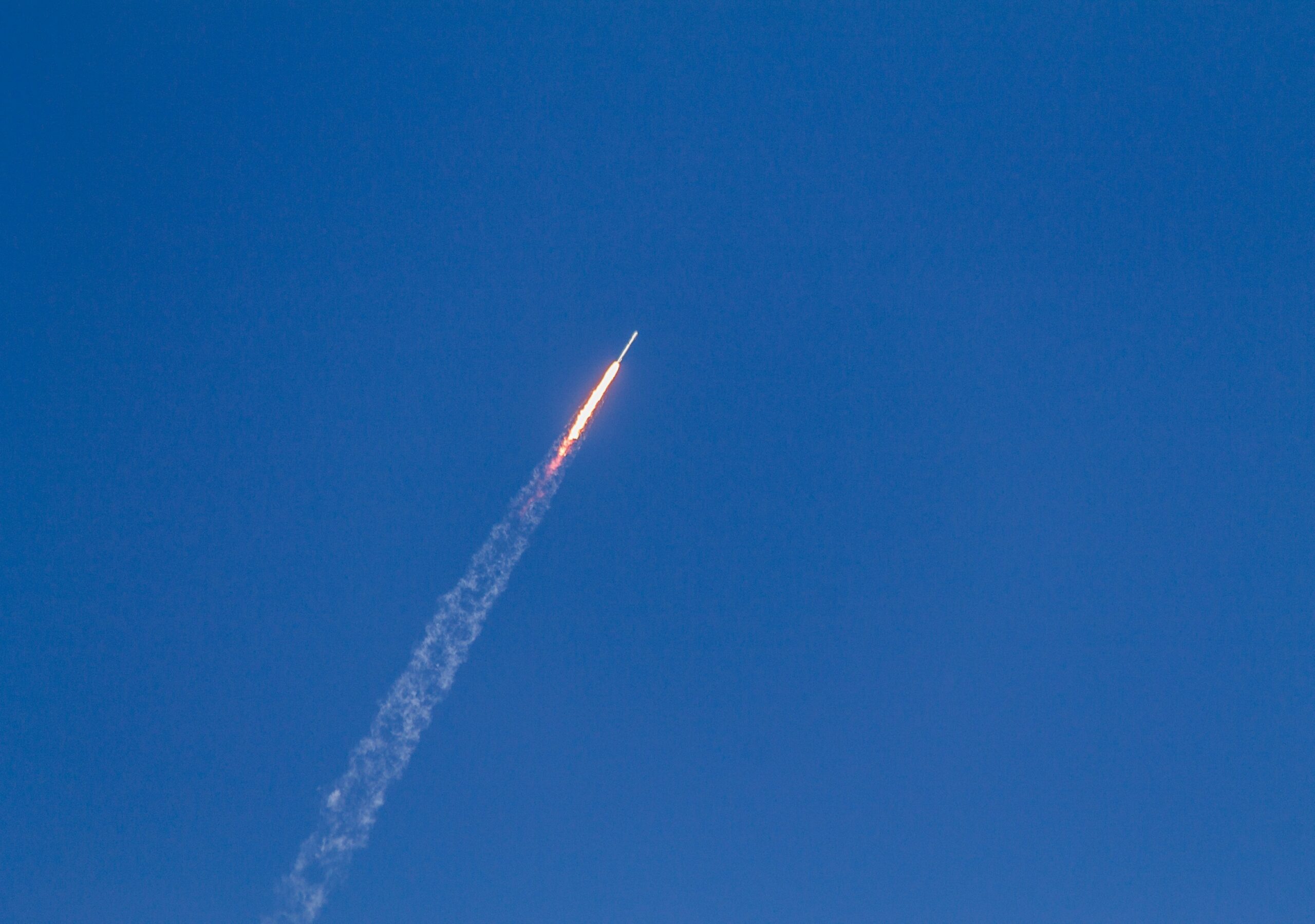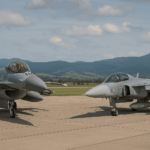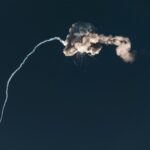Washington’s notice arrived 11 January 2024. The approval let the Kosovo Security Force, still a young service, jump straight toward top-tier anti-armor firepower. Each missile carries tandem warhead able to pierce modern tank plates. Fire-and-forget guidance lets the gunner duck the moment the motor ignites, which is why many squads rate the weapon as life-saving kit.
Kosovo leaders said the purchase closes a gap that long bothered them. Light infantry could stall an armored column only with older rocket launchers that demand close range. Javelin changes that math. Enemy crews now face hit probability above 90 percent at two-kilometer reach, a scary margin when steel moves fast. The deal also signals Kosovo’s pivot from basic peacekeeping load-outs to tools that match its geography: narrow valleys, ridgelines, tight village lanes.
Kosovo Security Force Enhances Anti-Armor Capability with Javelin Missiles
The green-light covers far more than tubes and missiles. Pentagon planners bundled gear and classroom material so the force can run its own sustainment chain. The list includes:
- LWCLU basic skills trainers
- Outdoor trainers with thermal sights
- Missile simulation rounds
- Instructor work-stations for range drills
- Battery coolant units and spare cables
- Tool kits for line maintenance
- System integration checks plus data logs
- Interactive e-manuals with flip-through pages
- Printed operator guides in Albanian and English
- In-country instruction for gunners, ammo techs, and depot staff
By weaving trainers and manuals into the purchase, program chiefs avoid repeat trips by U.S. contractors. Remote sessions and short mobile teams will cover the fine points, but day-to-day upkeep lands on KSF shoulders.
Training and Support Loop
Lockheed Martin in Florida and Raytheon in Arizona stand as prime builders. Both firms already run digital classrooms that sync to laptop over sat-link, a feature handy for smaller armies. Lockheed Martin recently secured a major contract to supply Egyptian F-16s, underscoring its global defense footprint. Kosovo intends to base its first cadre at Istog barracks, then fan crews across regional depots. Officers say the plan puts one launcher in every rapid-response platoon before winter.
Some missteps will crop up. Spare batteries freeze if stored wrong, optics fog when gaskets crack, and range safety teams still lack full thermal targets. Still, trainers argue these hurdles sit far lower than those tied to heavier tracked systems. Kosovo avoids big repair garages, fuel tankers, and stacks of steel plates, yet gains punch able to deter an armored probe down the Ibar corridor.
Evaluating Javelin Missile Cost Against Tactical Advantages
The State Department pushed the case by stressing wider Balkan stability. Decision memos point out that a confident Kosovo spends less time pleading for allied troops. That frees NATO planners, at least on paper, to shift rotating battalions toward other flashpoints. Congress nodded the file through fast; no committee demanded long hearings. Staff aides privately note the stamp came one day after a fresh border clash near Banjska where Kosovar patrols felt out-gunned.
American envoys deny the move is jab at Serbia, yet the timing reads plain. Belgrade still buys Russian Pantsir batteries and Chinese drones. U.S. diplomats state the twin tracks—help a partner, nudge a rival—fit standard deterrence logic. The approval also reassures Baltic and Polish observers who track every Balkans flare for signs of Moscow tugging strings.
Serbian Reaction
President Aleksandar Vučić called the sale “needlessly provocative” in evening address. Belgrade media looped tank-zap footage pulled from Iraq War archives, warning viewers that Kosovo “points missile at Serb homes.” Officials later toned language but kept core objection: Serbia never accepted Kosovo’s 2008 declaration of independence and views heavy arms across the line as threat. This core objection highlights the heightened regional tensions noted by observers following the missile sale.
Analysts in Belgrade admit Javelin count, two hundred-plus rounds, cannot overturn regional balance alone. Serbia fields near three hundred main battle tanks. Yet symbolism matters. A modest force armed with precision top-attack weapons can shred armor that ventures too close, forcing commanders to rethink posture inside disputed zones such as North Mitrovica.
Kosovo Security Force Evolution
The Kosovo Security Force began as civil-protection wing tasked with flood relief and mine removal. Transformation to defense force started 2018 when parliament passed three laws over loud objections from Belgrade and some EU diplomats. Since then, recruits train under NATO mentorship, rotating through Fort Benning and Grafenwöhr ranges. The army now lists about 5,400 regulars.
Leaders kept ambition realistic. They skipped tanks, artillery brigades, and long-line supply trains. Instead they chase mobility, night optics, and shoulder weapons that level odds against larger foes. Javelin fits that blueprint. So does recent buy of Bayraktar TB2 drones from Turkey. Together these assets build layered net: eyes in the sky, precision teeth on the ground.
Modernization Drive
Kosovo’s defence board wrote ten-year plan that clusters upgrades round three pillars: situational awareness, hardened infantry, and domestic industry. After the Javelin notice, planners opened talks for counter-drone rifles, secure radios, and small convoy of 4×4 armored carriers. This pattern reflects how small armies prioritize cost-effective modernization, often opting for versatile assets over heavy platforms. None of these items break bank individually, yet combined they push annual budget past two percent of GDP, a line many Western lawmakers applaud.
Critics inside Kosovo fear social programs will suffer. Schools still lack labs, clinics lose staff abroad chasing better pay. Parliament’s finance committee battled over half a dozen late-night sessions before approving credit line to cover missile batch. In the end, majority sided with defense chiefs, arguing an unsecured frontier chills investment harder than any loan interest.
Economic Angle
The $75 million tag equals roughly one-quarter of Kosovo’s yearly capital-equipment outlays. Officials say vendor offsets soften the load. Lockheed and Raytheon agree to fund local coding bootcamps plus donate diagnostic benches for the up-coming state ammo plant. That factory, announced November 2024, aims to churn small-caliber rounds by early 2026, cutting import bills that now drain cash.
Jobs remain small in raw head-count. Maybe two-hundred engineers at peak, plus another few dozen tech writers. Still, every stable paycheck counts in towns like Skenderaj where youth unemployment hovers near forty percent. Ministry economists claim spill-overs: logistics firms land hauling contracts, universities win grants, and tool suppliers sell meters and solder.
European Stability Questions
Some EU officials grumble that fresh arms complicate dialogue with Serbia. Brussels mediators prefer confidence-building schemes, not missiles. Yet the same envoys concede progress crawls. Talks stall over license-plate rules, utility grids, court jurisdictions. While diplomats shuttle between capitals, commanders must plan for worst days. A ready Javelin stock, in their view, lowers temptation for sudden push of armored police into tense villages.
Security scholars warn of mirror moves. Serbia might seek extra Kornet missiles or bargain for more Pantsirs. That cycle risks climbing beyond flashpoint. Observers urge transparency, joint inspections, and hotline drills. Kosovo says it stands open to such steps once weapons arrive. Belgrade’s defense council has not answered.
Kosovo Security Force Advances Ammunition and Drone Development – March 2025 Update
Since late 2024, Kosovo turned blueprint into bricks. Defence Minister Ejup Maqedonci chairs commission driving twin projects: state-owned ammo line and drone dev lab. Survey crews cleared ground near Ferizaj, tapping Italian firm for modular halls. Turkish advisers feed specs for case-less propellant presses and CNC lathes.
Engineers schedule first pilot lot of 5.56 mm rounds by January 2026. Planners swear domestic shells stay cheaper than imports even counting debt. The drone lab will share roof with university annex so student coders can tweak autopilots. Program leads hope cross-pollination keeps graduates home rather than exporting talent to Berlin or Zürich.
Meanwhile, KSF missile teams finished initial firing course at Camp Bondsteel range last August. Records show 20 direct hits from 22 live shots, with two duds traced to old batteries. Trainers traced error, fixed storage temp protocol, moved spares into insulated bunkers. The next batch of 40 shooters enters field drill this June, stepping path to certify every infantry company inside two years.
Outlook
Kosovo now stands on edge of new maturity stage. Armor killers in shoulder tubes, eyes aloft in drone wings, and bullets rolling off local presses knit a defence layer once thought out of reach for a state born in 2008. Success rests on disciplined upkeep, clear rules of engagement, and steady funding. Slip on any corner, and shiny kit rusts quick.
American backers watch for signs of good stewardship: sealed depots, audited ammo counts, safe disposal of spent cells. The Pentagon can pull tech support if misuse flares, a clause buried in every foreign-mil-sales letter. Kosovo officers say they grasp the stakes. With neighbors still wary and donors still measuring trust, the path forward demands both firmness and restraint.
If Pristina manages that balance, the Javelin fleet may do more than break tank armor. It may grant Kosovo enough confidence to sit at the table, argue hard, yet step back from brink. In Balkans politics, that margin could weigh heavier than any steel hull.
REFERENCE SOURCES:
- https://defence-industry.eu/bulgaria-lawmakers-approve-usd-82-million-procurement-of-javelin-anti-tank-missiles/
- https://euro-sd.com/2024/01/major-news/35924/us-fms-kosovo-javelins/
- https://english.alarabiya.net/News/world/2024/01/12/US-approves-75-million-sale-of-anti-tank-missiles-to-Kosovo-after-Serbia-flare-up
- https://www.federalregister.gov/documents/2024/12/31/2024-31138/arms-sales-notification
- https://militaryleak.com/2024/01/14/us-state-department-approves-sale-of-javelin-missiles-and-related-equipment-to-kosovo/
- https://www.defensenews.com/global/europe/2024/01/12/us-approves-possible-javelin-sale-to-kosovo-amid-tensions-with-serbia/
- https://www.republicworld.com/defence/global-defence-news/us-nods-to-kosovo-s-javelin-missile-purchase-igniting-regional-geopolitical-sparks
- https://www.reuters.com/world/europe/kosovo-build-ammunition-factory-drone-lab-support-defence-industry-2024-11-27/



